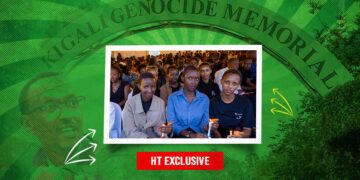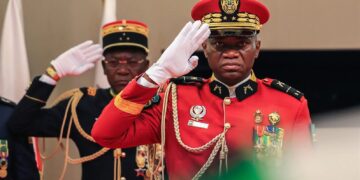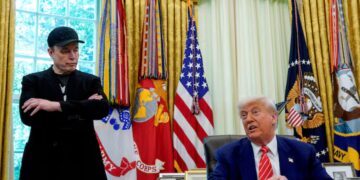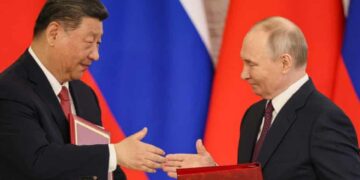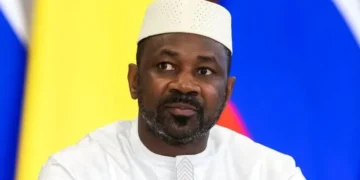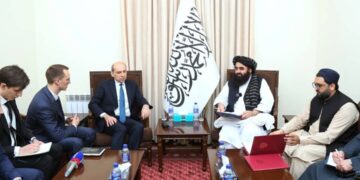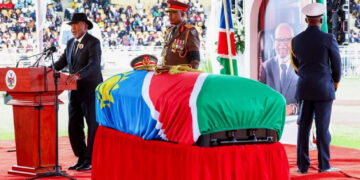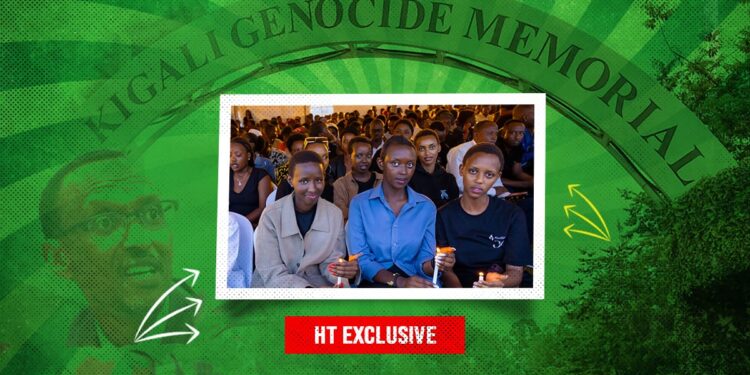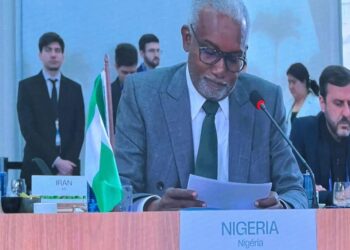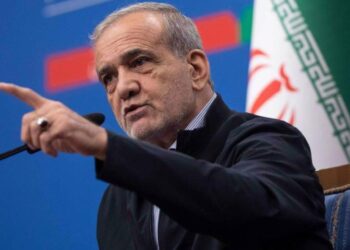By Elie Mutangana, Kigali
There is no justice if we leave room for denialism, revisionism and debates that perpetrate a Genocide ideology.
As Rwanda commemorated 30 years this month since the Genocide against the Tutsis in 1994, Rwandan youths are reflecting on the journey of reconciliation which is an ending road, embracing the knowledge about the history of their country and commitment to fighting the 1994 atrocity to never happen again in Rwanda and beyond it.
On April 13, Rwanda concluded the week of remembering the victims of the Genocide against the Tutsis, not only just to mourn, but also reflecting on the recovery of the country over the past 30 years and saluting the former Rwanda Patriotic Army (RPA), led by Paul Kagame for bravely stopping the genocide.
Through the week, HT Exclusive learnt that the country had different conversations around commemoration, locally dubbed as ‘Kwibuka’, in Kinyarwanda language – mostly aiming at educating young people about the genocide stages, reviewing testimonies and books written about the Genocide against the Tutsi and among others.
Rwanda is relatively a youth populated country with 50 percent of the almost 14 million population under 20 years old.
These young people have witnessed how perpetrators and survivors have reconciled and lived side by side after the Genocide, just because the government that stopped the genocide and took power prevailed justice in the country.
Nonetheless, survivors of the Genocide are still grappling with what happened in 1994, designating the ongoing injustice against the Tutsis in the region, especially in Democratic Republic of Congo.
READ ALSO: Donald Trump Trails Joe Biden By $75m In Fundraising As Donor Base Declines
There are also concerns about the existing perpetrators of the genocide who are hiding abroad without being brought to justice, yet spreading hate rhetoric and denial of the 1994 Genocide against the Tustis in Rwanda.
Youth-Led Initiatives In Educating History Of The 1994 Genocide
Christian Intwali, is among Rwandan youths who are dedicating their efforts to creating a more united society by involving youths in educational and communal events about learning the history of Rwanda- especially the history of the 1994 Genocide against the Tutsis.
In 2012, Ntwali started ‘Our Past Initiative’, a youth-led organization with a mission of educating youths born after the 1994 genocide about the history of Rwanda. Stemming from the gap of knowledge between the old generation and young one, the organization wants to bridge it.
Ntwali disclosed that the primary aim of the organization is to educate young people for enabling them educate others.
“We aim to raise questions among the young generation to be asked to the parents or guardians about the Genocide for knowing exactly what happened and encouraging old people to talk to young generation. We also call the contribution of the youth in taking part in the rebuilding process of our country”.
Every year on April 9, the organization holds event where about 300 youths convene to learn about the history of Rwanda.
Additionally, it also brings the youths to participate in renovation and healing journey, where youths build homes for survivors, distribute clean water and many other initiatives related to embracing solidarity with survivors.
“Either being a survivor or being a perpetrator or coming from one of the two, we all need to know the truth and the reality behind what happened and after knowing that, that’s the only way we can prevent the genocide from never happening again,” said Ntwali.
The Rwandan government is committed to distributing books detailing the 1994 Genocide against the Tustis to children and youths in school for teaching them the true facts of history of the Genocide without distorting it.
According to JMV Rurangwa, the author of the French book, “Le Génocide perpétré contre les Tutsi du Rwanda expliqué à ses Enfants”, a book that uses a dialogical and pedagogical style, the author portrayed children in the book who ask curious questions about the Genocide to the book’s main character, portrayed as a professor, who sheds lights to the children on what happened in 1994.
“The idea originated from a request by young people to write a book for them that can explain the Genocide against the Tutsi in a simple language. The book also delves into the question of how parents can discuss the history of the Genocide against the Tutsi with their children,” said the author, whose insightful book is going to be distributed in schools in Rwanda.
Ethnic discrimination and racism are one of the main causes of most wars, massacres and mass migrations of people, as many moves away from places where they feel unwanted.
Drawing lessons from the past of Rwanda, eliminating elements of genocide ideology and denial has been among youth’s war to fight, given that denialism is a final part of genocidal stages.
A Conflict Discourse Analyst and Atrocity Prevention Consultant, Bojana Coulibaly who was recently in Rwanda for the ‘Kwibuka 30’ said denialism is aimed at creating doubt in a particular community, without scientific facts to support it, rather as a system of thought that is brought out and propagated in people to create doubt as to who were the victims and who were the perpetrators.
Experts add that genocide denialism does not just come from academics only, as it can be seen as part of a political agenda.
One of the biggest tactics used by the 1994 Genocide deniers is the use of books, papers written by those tried at the tribunals, as almost all of them have written a piece on what happened in 1994 in Rwanda, understandably focusing on denying the Genocide against the Tutsis.
“Among those propagating this denialism are young just like you, and there’s no reason that they should overwhelm you in this fight because you are the ones with true facts based on history,” said Jean Damascene Bizimana, Rwanda’s Minister of National Unity and Civic Engagement, who addressed the youth during the ‘Kwibuka’ events.
Denialism on Social Media
While young people are the biggest consumers of social media contents, Genocide deniers have taken advantage of it to spread genocide ideology and denialism.
A France-based Rwandan sociologist and Afro-feminist, Jesica Mwiza highlighted that nowadays genocide denialism has become weird on social media especially Tiktok and Youtube, where people just wake up and take their phones and share the history of the Genocide against the Tustis without any research, but with a lot of confidence.
She said that most of the time what those people talk about is completely false.
Recounting her story, the 1994 Genocide happened when she was just a baby, living in France with her mother. After the genocide, her mother came to Rwanda to search for her relatives but sadly found all of them massacred by the killers.
The devastating story hit Mwiza as she grew up and ignited her decision to fight any kind of denial of the genocide that was evolving on social media.
“I started to fight it actively on social media by writing texts to protect memory of my country and tell the truth behind the 1994 Genocide against the Tutsi,” she said.
She emphasized, “we also need to be careful about how we do name things, this is the ‘1994 Genocide against the Tutsis in Rwanda’ not ‘Rwandan Genocide’ because it was only the Tutsis who were targeted”.
Mwiza also revealed the inevitable questions that Rwandans living abroad encounter regarding to the history of Rwanda. She said that foreigners are often insensitive toward Rwandans, especially when asking about the 1994 Genocide against the Tutsis.
“I remember when I was in France, very often I had students at school and sometimes grown-up people telling me ‘You guys! Rwandans, you are savages, you killed each other’ and I was often asked ‘are you Hutu or Tutsi? Or did your family kill or killed? I had all those questions all my life abroad,” Mwiza shared.
She recommends youths, foreigners wanting to learn about the 1994 Genocide against the Tutsis in Rwanda to pick the books written by survivors or those who talked to them for avoiding being misled by some books written by perpetrators and denialists.
President Kagame On Misnaming The Genocide
Rwanda’s President, Paul Kagame doesn’t understand why his country remains indefinite about who was targeted in the 1994 Genocide.
Though the 1994 Genocide against the Tutsi has been internationally recognized by the United Nations, in contrast, there are still elements, mainly from the western countries who deliberately omit the words “against the Tutsis” while mentioning the 1994 Genocide against the Tustis and say “Rwandan Genocide” instead.
For example, there have been a social media backlash targeting US Secretary of State, Anthony Blinken, whose ‘Kwibuka 30’ message was interpreted by many Rwandans as an open genocide denial and revisionism.
On his X account, Blinken posted “We mourn many thousands of Tutsis, Hutus, Twas, and others whose lives were lost during 100 days of unspeakable violence”.
The part of post angered many Rwandans especially the survivors of the Genocide adding that it was not the first time for a US official to say such statement.
While addressing international, regional and local media who covered the National Remembrance Ceremony in Kigali, Kagame was asked about the Blinken’s post.
President Kagame said ‘he discussed about it with the former US president, Bill Clinton’, who had been sent in Kigali by President Joe Biden to lead the US delegation in Rwanda for 30th commemoration of the Genocide.
“Such ambiguity is, in fact, a form of denial, which is a crime in and of itself, and Rwanda will always challenge it,” President Kagame said, urging deniers to give Rwanda at least one day in a year- meaning April 7, and commemorate respectfully with Rwandans and then diss Rwanda in the rest of 365 days.
Rwanda condemns the theory of “Double genocide”- that two ethnic groups killed each other, pointing that discrimination against the Tustis dated back decades before 1994, and recalling the role of the then government led by the late President Juvenal Habyarimana in preparation of the genocide.
It is affirmed that ‘the theory of double genocide’ is something that perpetrators use to defend themselves when they are brought to justice and the other reason behind some countries’ reluctance to extradite fugitives of the 1994 Genocide against the Tutsis in Rwanda.
